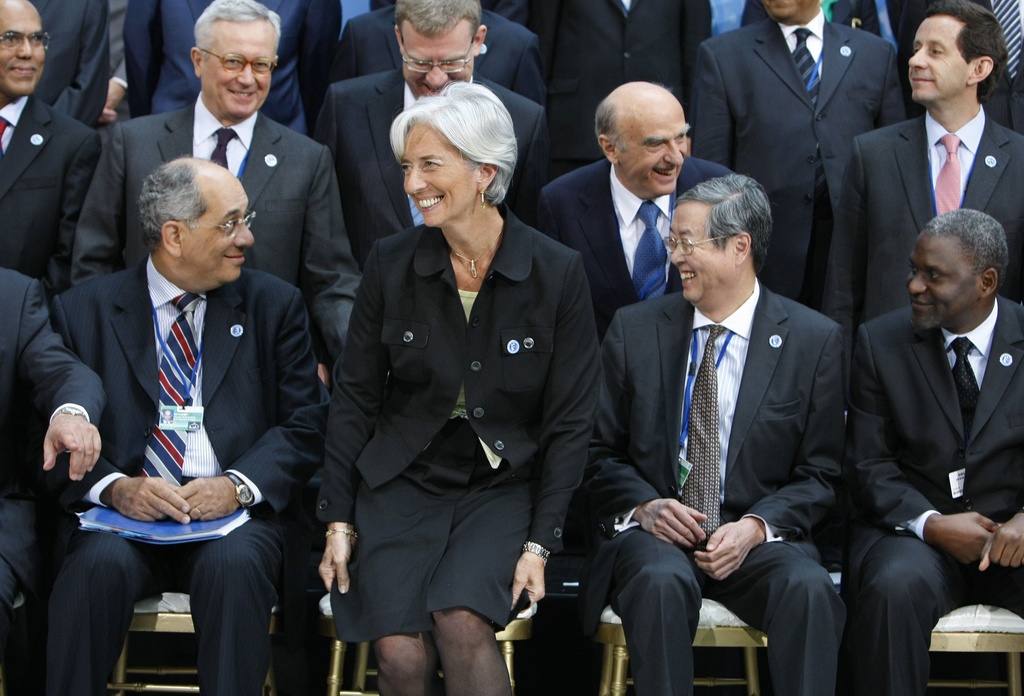Swiss turn down proposal for tax on banks

Switzerland’s finance minister has rejected the idea of a tax on banks, after attending meetings of the World Bank and International Monetary Fund in Washington.
Hans-Rudolf Merz told journalists that Switzerland’s case of helping a bank in trouble was different from that of other countries which had come to the rescue of their financial institutions.
The idea for such a tax has the support of countries that include the United States and Britain.
While the IMF maintains that the world economy is “recovering better than expected”, Merz believes that the differences of opinion among IMF member states have widened on the issue of how to prevent new crises.
“Three years ago, there was unanimity about the crisis and its scale. This unanimity was also there last year. But today, opinions differ over concrete measures to put in place,” he told a news conference.
Disagreement in particular surrounds what reforms should be implemented within the international financial system.
Symbolic
Symbolic of the stormy debate was the statement of the G20 group of finance ministers and central bank governors, published on the eve of the Bretton Woods meetings, which limited itself to saying that new international rules on banking and finance ought to be approved by the end of the year.
The divisions centre notably on the idea of a banking tax aimed at making the banks themselves contribute to special funds for financing any bail-out, without having to call upon taxpayers around the world. They have paid about $5,000 billion (SFr5,370 billion) to support banks and insurance companies in difficulty.
Although Washington and London are campaigning in favour of a tax on the banks, Bern is against. “The financial sector must not be burdened any more,” Merz said, adding that “each country has gone through the crisis in a different way and has drawn different conclusions”.
“[Swiss bank] UBS paid back Swiss taxpayers’ money with a profit of SFr1.5 billion. The Swiss situation is therefore different from that of countries which supported their banks with tens of billions and which are still involved with these banks,” he explained.
Asked by swissinfo.ch if Switzerland risked isolation by rejecting a tax on banks, the president of the Swiss National Bank (SNB) , Philipp Hildebrand, said it was only a “proposal” for the time being. He was hinting that a consensus for the US position was far away.
“Not ripe”
“The idea is by no means ripe for a decision at the IMF or G20.”
Jim Flaherty, the finance minister of Canada, which is also opposed to such a tax, went as far as arguing that the balance was swinging against the idea.
There are also differences among IMF members about national policies to get out of the crisis and strengthen the economic environment.
“Some say that taxes should be increased, others want to reduce them and there are even those advocating structural reforms such as raising the age of retirement,” explained Merz, who underlined that the Swiss government would discuss some of the issues at its meeting on Wednesday.
If reform of the financial sector is slow on the international front, including the US, Switzerland has just made an important step in the direction of reform by publishing an expert report commissioned by the government.
The experts in particular want to force the banks to increase their capital stock and spread their risks.
More powers
In a report published last month, IMF economists advised the government to strengthen reforms by giving more powers to the Swiss National Bank and the Swiss Financial Market Supervisory Authority (Finma) at the same time as defining their roles more clearly.
Merz on Saturday reacted by saying that Switzerland was already thinking of changes in market supervision.
“The government commissioned an expert evaluation and the result is good when it comes to the effectiveness of collaboration between the SNB and Finma,” he assured.
In the absence of Swiss Economics Minister Doris Leuthard, the head of the State Secretariat for Economic Affairs, Jean-Daniel Gerber, represented Switzerland at the World Bank meetings.
He emphasised that “if developing and emerging countries are recording a robust [economic] recovery, the situation is not the same everywher”, adding that “several years could go by before these countries can wipe out the losses they have had to cope with during the crisis.”
Noting “the high human cost associated with the world economic crisis”, Gerber called on donor countries and multilateral development institutions to “boost their efforts to increase aid and increase its effectiveness”.
Marie-Christine Bonzom, swissinfo.ch, Washington (Translated from French by Robert Brookes)
A vice-president of the Swiss National Bank. Thomas Jordan, says banks need capital and capital of better quality, although it is too early to say how much.
He told the SonntagsZeitung newspaper that Switzerland may implement tougher rules on banks than other countries and in the case of another crisis could allow a bank such as UBS to fail.
Jordan is part of a government commission that last week issued an interim report on banks that are “too big to fail”, saying regulators should have the powers to force banks to make the necessary changes if banks fail to do so themselves.
“As a small economy, it is possible that we’ll have tougher rules than abroad,” he was quoted as saying.
In its world economic growth forecasts published on April 21, the IMF foresees Swiss growth of 1.5% this year and 0.8% in 2011.
This is better than any economy in the euro zone but not asgood as average growth in developing countries.
According to the IMF, inflation in Switzerland should rise in 2010 and 2011.

In compliance with the JTI standards
More: SWI swissinfo.ch certified by the Journalism Trust Initiative














You can find an overview of ongoing debates with our journalists here . Please join us!
If you want to start a conversation about a topic raised in this article or want to report factual errors, email us at english@swissinfo.ch.